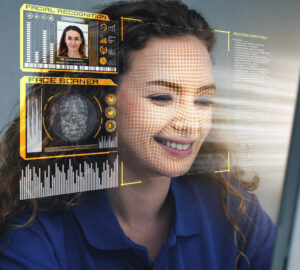How Digital Identity is Revolutionizing the Hospitality Industry
The Hospitality Industry has witnessed a significant transformation due to digital identity. With the widespread adoption of technology and the growing reliance on online platforms, the way Hospitality businesses operate and interact with their customers has changed drastically. Below, we will explore the impact of digital identity on the Hospitality Industry and how it has revolutionized the way businesses provide services and cater to the needs of their guests.
Streamlined Booking and Check-In Processes
Gone are the days of long lines at the front desk. Digital identity has revolutionized the booking and check-in processes, making them seamless and hassle-free. With the advent of online booking platforms and mobile apps, guests can now book their accommodations and complete the check-in process with just a few clicks. By leveraging digital identity verification systems, hotels can authenticate guests’ identities and ensure a smooth and secure check-in experience. This not only saves time for guests but also improves operational efficiency for businesses.
Enhanced Guest Safety and Security
Digital identity plays a vital role in enhancing guest safety and security within the Hospitality Industry. By implementing robust identity verification measures, hotels can protect their guests’ personal information and prevent unauthorized access to sensitive data. Additionally, digital identity technologies such as biometric authentication and digital key systems offer an extra layer of security, reducing the risk of keycard theft or unauthorized room access. These advancements not only provide peace of mind to guests but also contribute to the overall reputation and credibility of the industry.
The Power of Personalization
Digital identity has enabled Hospitality businesses to offer personalized experiences to their guests. By collecting and analyzing customer data, hotels and resorts can gain valuable insights into their guests’ preferences, behavior, and interests. This information can be used to create tailored experiences and recommendations, ensuring that each guest feels special and receives services that align with their individual preferences. Whether it’s personalized room settings, customized dining options, or curated activity suggestions, digital identity allows businesses to enhance the overall guest experience and build long-lasting relationships.
Data-Driven Decision Making
With the help of digital identity, hotels can leverage the power of data-driven decision making. By collecting and analyzing guest data, hotels can gain valuable insights into market trends, customer preferences, and operational efficiency. These insights can inform strategic decisions, such as pricing strategies, service improvements, and resource allocation. Moreover, by tracking guest feedback and sentiment analysis, businesses can identify areas for improvement and deliver a superior guest experience. Digital identity acts as a catalyst for informed decision making, driving the overall success and growth of hospitality businesses.
Personalized Marketing and Targeted Campaigns
Digital identity enables those in Hospitality to implement targeted marketing campaigns and reach their ideal customer base more effectively. By understanding guests’ preferences and past behavior, hotels can create personalized marketing messages that resonate with their target audience. Whether it’s offering exclusive promotions, loyalty rewards, or personalized recommendations, digital identity empowers businesses to deliver relevant content and promotions to individual guests. This not only improves customer engagement but also increases the likelihood of repeat bookings and brand loyalty.
Biometric Technology
Hotels are adopting biometric technology, such as facial recognition in high numbers. Biometrics is the measurement and analysis of unique physical or behavioral characteristics that can be used to identify individuals. Facial recognition technology is an example of biometric technology that hotels can use to verify the identity of guests and can also be used to personalize the guest experience. Hotels can use facial recognition technology to greet guests by name as they enter the hotel, or to suggest activities and amenities based on a guest’s past behavior. Biometric technology can be used in the check-in and check-out process for guests and eliminates the need for traditional check-in procedures, such as displaying identification and signing paperwork, saving guests time while improving the guest experience.
Hotels can Create Exceptional Guest Experiences
Digital identity has undoubtedly transformed the Hospitality Industry in numerous ways. From personalized experiences and streamlined processes to enhanced safety and data-driven decision making, the impact of digital identity is evident across all aspects of the industry. As technology continues to evolve, it is crucial for Hospitality businesses to embrace digital identity solutions and leverage their benefits fully. By doing so, they can stay ahead of the competition, deliver exceptional guest experiences, and establish themselves as leaders in the industry.
The integration of digital identity into Hospitality has brought about significant advancements and improvements. The ability to personalize services, streamline processes, enhance security, implement targeted marketing, and make data-driven decisions has revolutionized the way hotels and resorts operate. Embracing digital identity solutions is no longer an option but a necessity for businesses that strive to provide exceptional guest experiences and stay competitive in the ever-evolving digital landscape.

